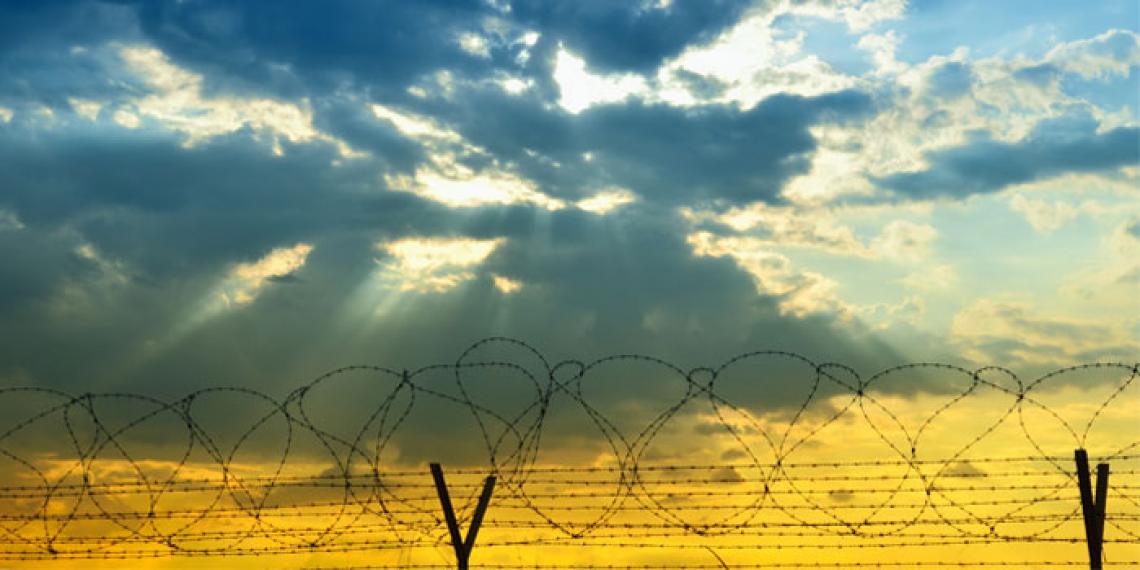You are here
The concept of blessing

You know that awkward moment when you start to say, ‘Man, I was lucky that the stampeding monkey on a motorbike decided to turn left instead of coming at me,’ but stop yourself and say, ‘Eerr, I mean, blessed—I was blessed!.
But the concept of ‘blessing’ has to be more than a Christian code word for ‘luck’. In saying that we are blessed, we are acknowledging the sovereignty of God in our lives. And, yes, we should acknowledge all the good things he brings into our lives. But if we say we’re blessed because we are spared some disaster or disease, or because we get a job, or a house or a new car, it begs the question: what about those who aren’t so lucky … or blessed? What about those people living with disease, or long-term unemployment, or those who are suffering?
One of the most challenging stories that I have ever heard comes from Corrie Ten Boom’s classic book The Hiding Place, about Corrie and her sister Betsie’s experiences in the Ravensbrück concentration camp of World War II. As Corrie recalls, one day the sisters found fleas in the rotten hay of their barracks. Betsie responded by giving thanks:
‘Thank You,’ Betsie went on serenely, ‘for the fleas and for …’ The fleas! This was too much. ‘Betsie, there’s no way even God can make me grateful for a flea.’ ‘Give thanks in all circumstances,’ she quoted. ‘[The Bible] doesn’t say, “in pleasant circumstances.” Fleas are part of this place where God has put us.’
With great timidity, Betsie and Corrie began Bible studies in their dorm of 1400 women (which was meant to have a capacity of 400). Strangely, they were left entirely unsupervised. They grew bolder and began two daily meetings, with more and more women joining in.
One night, Corrie returned late to the barracks to find her sister. ‘You’re looking extraordinarily pleased with yourself,’ I told her. ‘You know, we’ve never understood why we had so much freedom in the big room,’ she said. ‘Well—I’ve found out.’ That afternoon there’d been confusion in her knitting group about sock sizes and they’d asked the supervisor to come and settle it. ‘But she wouldn’t. She wouldn’t step through the door and neither would the guards. And you know why?’ Betsie could not keep the triumph from her voice: ‘Because of the fl eas! Th at’s what she said, ‘That place is crawling with fleas!’
Corrie says she never understood why God allowed so much of the suff ering they experienced. Yet, in this small example, she and Betsie saw the hand of God in the most inhuman of circumstances.
The blessing was not in the fleas, but in God’s presence within a ‘Godforsaken’ place.This allowed Corrie and her sister to experience a peace that they were able to pass on to those suff ering with them. And it allowed them to change their world—incredibly, spreading joy through their overcrowded barracks as more and more discovered the light of Jesus.
This story teaches me that thanking God is not some stupid Pollyanna form of denial. Instead, these courageous women acknowledged God’s presence in a deep, selfsacrifi cial way that was not based on external circumstances.They walked humbly with their God.
The blessing of God is his presence in our lives. Our circumstances change—sometimes we are in the sunlight, and sometimes in shadow. But God does not change.
This ‘blessing’ is not a feeling; it’s a status we are given because Jesus came to make himself present among us. We are blessed because we know him. And that’s a blessing we can share with everyone, in all circumstances.
By Ingrid Barratt